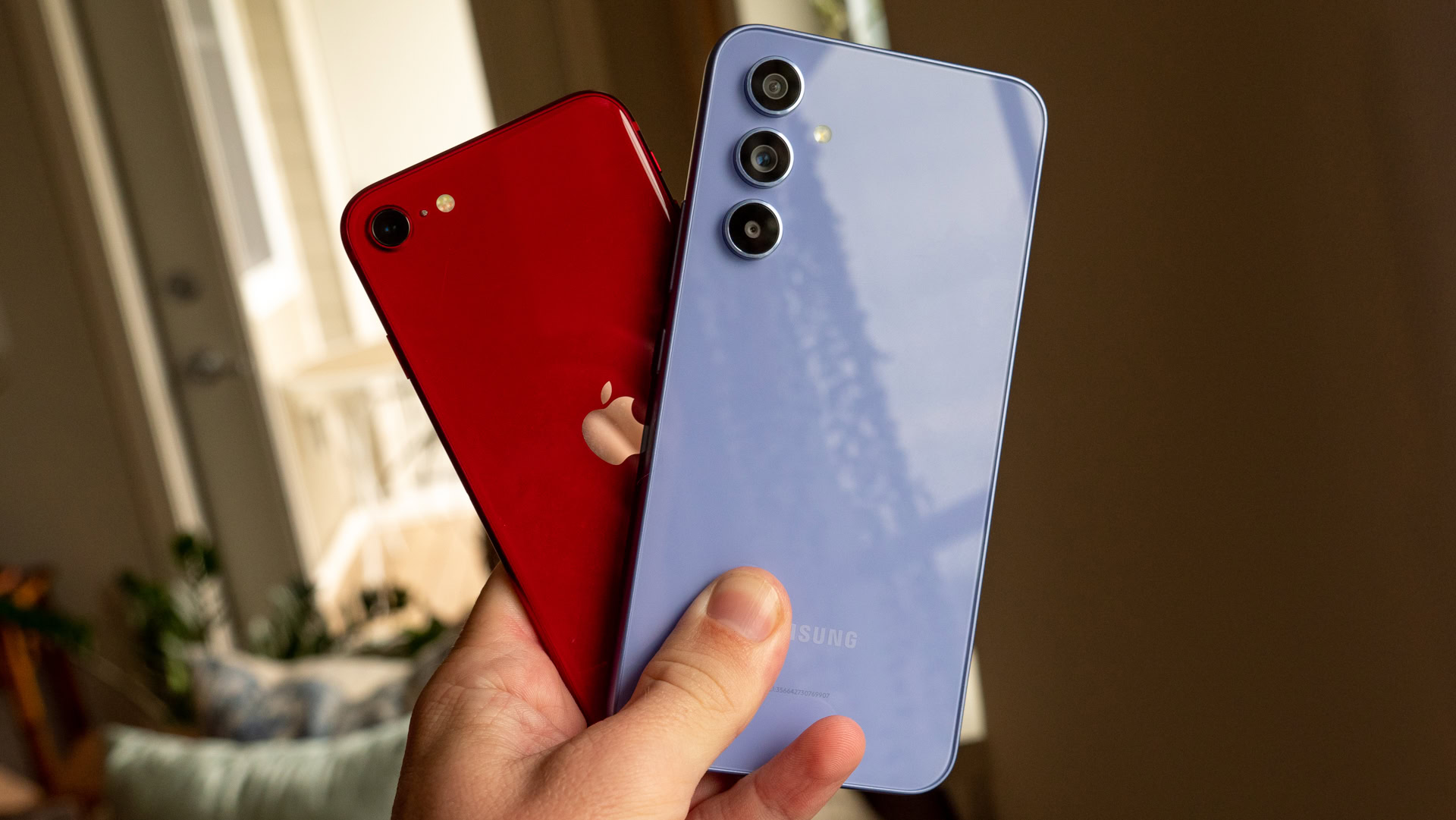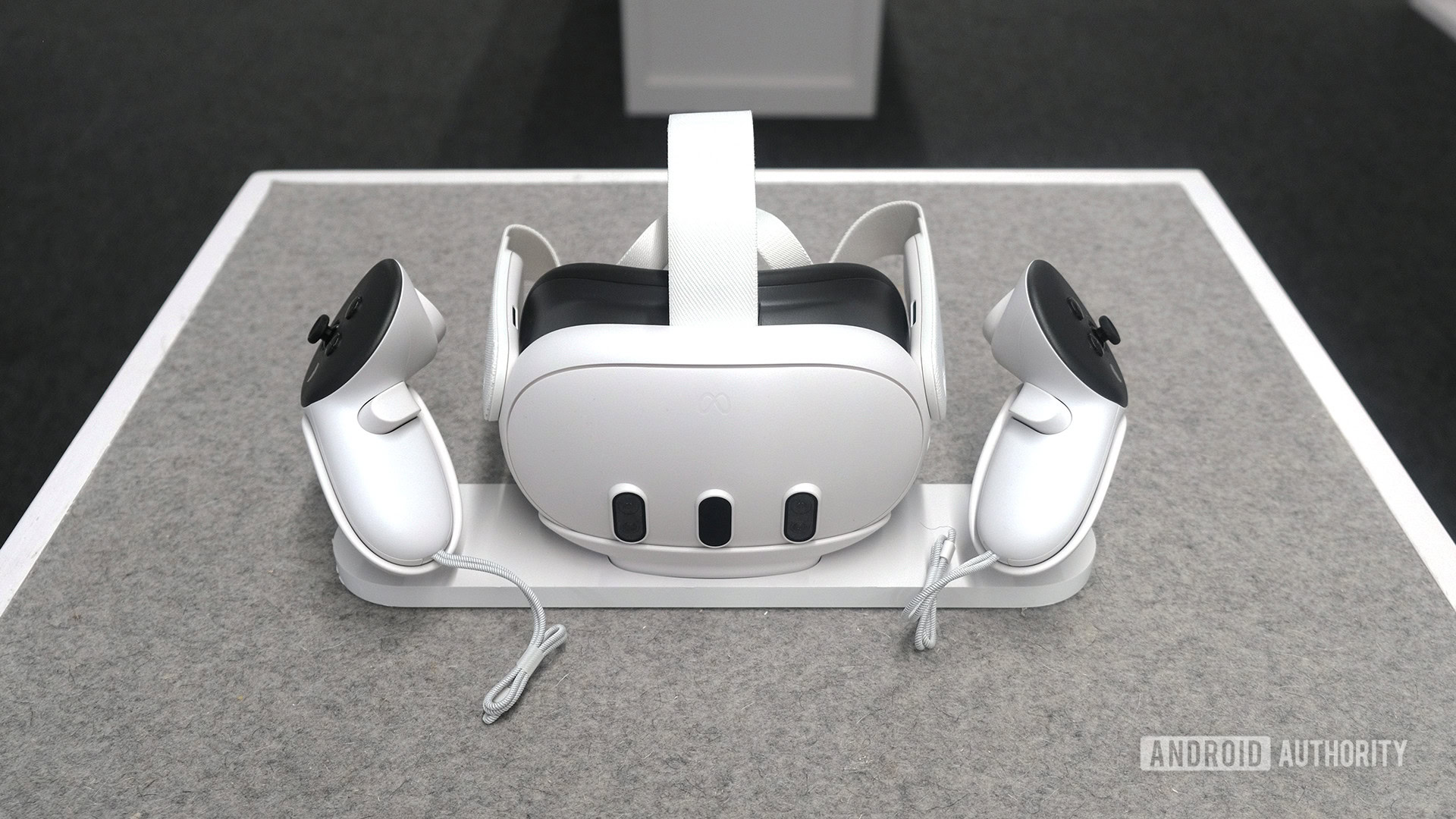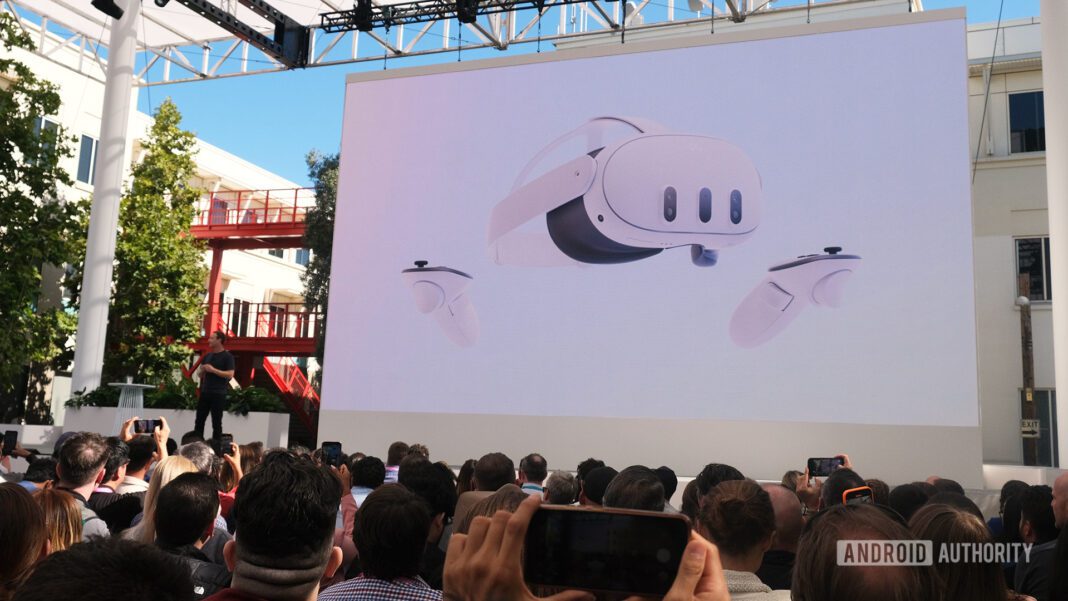C. Scott Brown / Android Authority
Earlier this week, I attended Meta Connect 2023, the company’s tenth annual developer conference. During this event, Meta CEO Mark Zuckerberg announced, among other things, the brand-new Meta Quest 3. A sequel to the Meta Quest 2 (née Oculus Quest 2), the Quest 3 is Meta’s new and upgraded XR headset that keeps an introductory price under $500.
During the launch, one word kept popping up: “accessible.” Zuckerberg said it numerous times, as did other presenters from the Meta team. In the context of this keynote, “accessibility” is being used literally: Meta wants its products to be obtainable by as many people as possible. To do that, it needs to keep a low price.
Although no one referred to it by name, this constant reference to the affordability of Meta’s products was undoubtedly a dig at Apple. Earlier this year, at its own developer conference, Apple launched the Vision Pro. That XR headset is a super-powered, forward-thinking, futuristic machine unlike anything we’ve ever seen. However exciting it might be, it’s also incredibly expensive, with an introductory price of a jaw-dropping $3,499 — that’s 7x as much as a Quest 3.
While watching the Connect keynote, I couldn’t help but think that the Vision Pro launch has galvanized Meta’s XR ambitions. Seemingly overnight, Meta went from being a VR hardware creator without any clear direction to a laser-focused establishment. That focus? To be the affordable everyman alternative to the expensive bourgeois Vision Pro.
Being an Android guy, it was difficult not to compare this to the world I know. In my opinion, it appears Meta wants its XR products to be the Android phone of the headset world.
Meta wants its XR experience to be more like Android, less like Apple

Ryan Haines / Android Authority
When Google bought Android in 2005, it was very intentional about what it wanted to do: create an open-source mobile operating system that any manufacturer could use. In other words, it wanted Android to be the opposite of Apple’s closed-system approach on the iPhone.
The open-source nature of Android has widened its reach far more than iOS. There are over three billion active Android users, representing about 70% of all smartphones globally. This market share dominance is owed to Android’s compatibility with varying hardware experiences at pretty much any price point, from $50 to $2,000. The iPhone is very popular, yes, but it is not even in the same league as Android phones when it comes to global reach and market share.
This is what Mark Zuckerberg wants. He wants the Meta Quest series to be seen as the XR headset that pretty much anyone can get. Apple’s launch of the Vision Pro finally gave Meta a better frame of reference. After all, you can’t say, “The Meta Quest 3 is actually really cheap for what you get,” if consumers don’t have something to compare it to. Now, with the Vision Pro, it’s obvious how much the Quest 3 offers for a fraction of the Vision Pro’s price of admission.
Apple’s crazy pricing of the Vision Pro has given Meta the means to make its product the everyman alternative.
As with Android phones and iPhones, it’s not just pricing that separates the Quest 3 and the Vision Pro, either. The Quest 3 is designed to cater to what regular people want and care about in an XR headset: games, entertainment, and social features. During the Connect keynote, Zuckerberg and co. smartly focused on these three aspects. Sure, they also mentioned productivity, but it was a minor aside compared to the three main topics.
Meanwhile, Apple repeatedly sang the praises of the Vision Pro for work during its own launch event. It showed people firing up the Vision Pro to do what — quite frankly — they already do just fine without a $3,500 headset: type on a keyboard in front of a screen. It also showcased how you can record your memories with the Vision Pro and watch them back as a 360-degree experience. However, most people I’ve talked to about it find this whole idea to be incredibly creepy. They imagine Dad sitting on the couch with his weird facemask thing, staring at the kids as they open presents on Christmas morning. No thanks.
Meta didn’t do anything like that at its launch event. It focused on all the cool games coming to the Quest 3, how you can play non-VR Xbox games using the headset, watch sports, hang out with your friends in the metaverse doing fun activities, etc. It was all about fun, which is what people are primarily buying these things for, right?
Innovation isn’t always about making new things

C. Scott Brown / Android Authority
I won’t lie: From a technological point of view, the Apple Vision Pro seems like a more innovative and more impressive device than the Quest 3. The Quest 3 is, without a doubt, an iterative upgrade on something we’ve seen before from Meta, Valve, HTC, and others. The Vision Pro, though, is like something out of a sci-fi film. It’s hard to believe it’s even real.
Regardless of how ingenious it is, though, pure innovation doesn’t necessarily beget great consumer products. Having a futuristic product isn’t enough, you need use cases to attract people and high adoption rates to move forward.
Meta wants the 70/30 market share that Android enjoys, and it just might get it.
Making something that already exists more accessible to a larger audience is a form of innovation, in my opinion — one that Apple tends to ignore and to which Meta is giving a warm embrace. Going back to the Android analogy, Zuckerberg is adopting Google’s approach and banking on most people wanting an XR headset that is simple, affordable, easy to use, and ready to do the things they want to do. Yes, there will be others out there who will want — and be able to afford — the Vision Pro. But Meta wants the 70/30 market share that Android enjoys, and — thanks to Apple’s ludicrous Vision Pro pricing — it just might get it.


